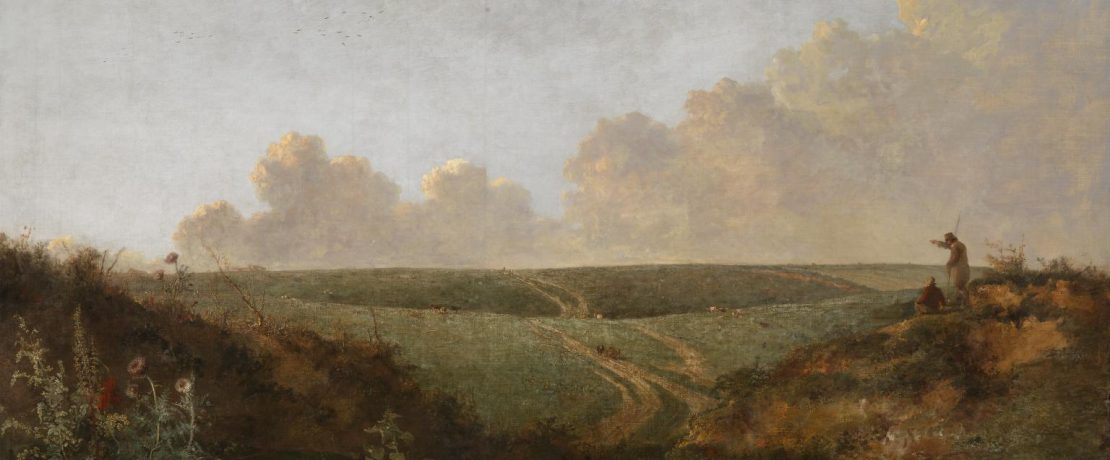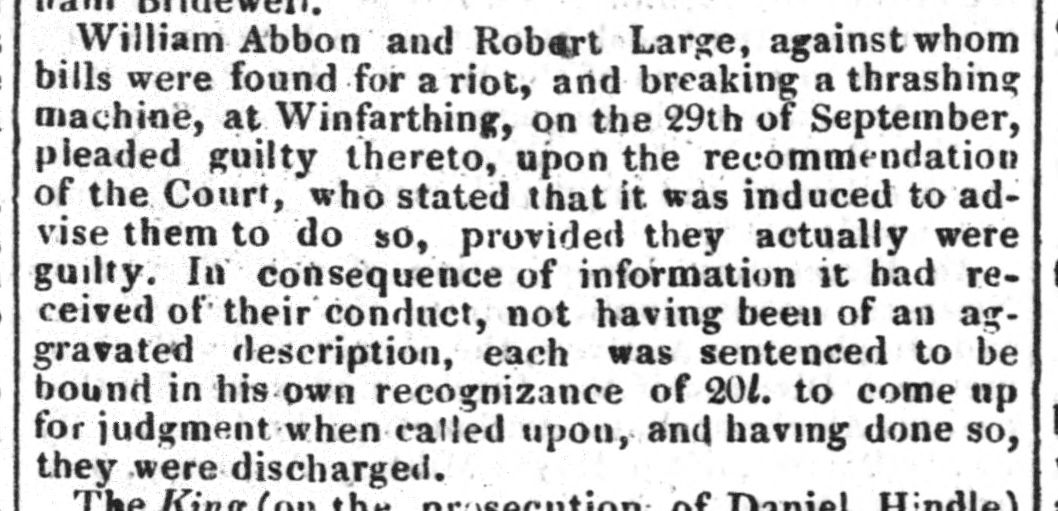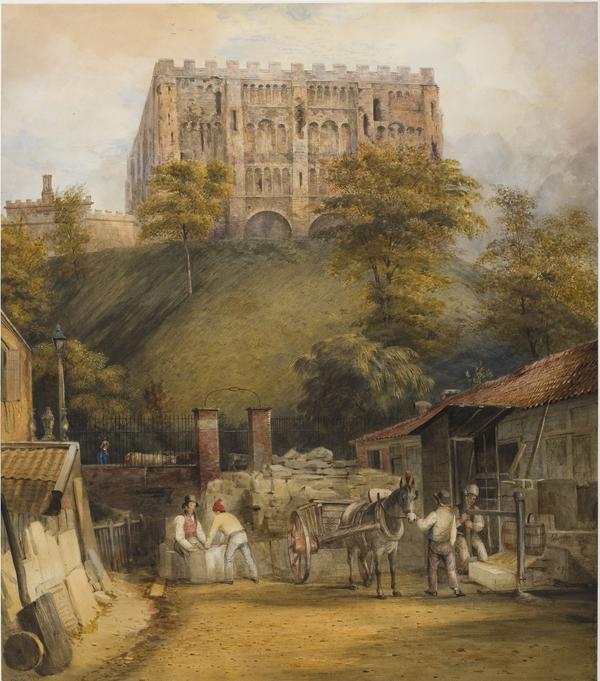As part of my Ebbans One Name Study, I spent some time researching a man involved in the Agrarian Riots of the 1820s and 1830s. Imagine my excitement when while watching an episode of Who Do You Think You Are, parts of the story began to sound familiar to me and I realised they were referring to the man I had researched!
Part of the episode focused on Ed Balls’ agricultural labourer ancestor, Christopher Green, who was also involved in the riots and charged with arson alongside William Ebbon in 1832. (It can be viewed on the BBC iPlayer – Green’s story begins at 29:45.)
William Ebbon was baptised at St Leonard’s, Horningsheath (later known as Horringer) in Suffolk, on the 4th of August 1799. He was the son of William Ebbon and Temperance Elliss.

By 1821, the family had settled in nearby Winfarthing, Norfolk. In the 1821 census, William was recorded with his parents at the Winfarthing Workhouse. However, they were not inmates, his father was noted as the governor, whereas 22-year-old William was recorded as a labourer.
The show discusses Christopher Green’s arrest for destroying a threshing machine at Winfarthing on 19 September 1822. William wasn’t named as one of the men involved that night, but he was arrested for the same offence 10 days later. He and Ed Balls’ ancestor were both part of the growing movement of disgruntled agricultural labourers who felt forced to act against their livelihoods being taken away from them. One of the main issues was the introduction of new machinery that took even more work away from the already struggling labourers. (For more information see my post about the Agrarian Riots.)
On 29 September 1822, William was involved in the breaking of a threshing machine at Winfarthing during a riot of agricultural labourers. He and a man named Robert Large, pleaded guilty and the court decided that as their conduct was “not having been of an aggravated description”, both were sentenced to be bound in their own recognizance of £20. They were able to do so and were discharged.

Ten years later, William was again involved in destruction of property. In 1832, he, along with Christopher Green and Robert Hubbard, was charged with “having set fire to the premises of the Manor-house called Winfarthing Lodge, the property of the Earl of Albemarle, and in the occupation of Mr. Daniel Doggett, an opulent farmer…”. The men were committed to Norwich Castle (the county gaol). Hubbard ‘turned approver’ and gave evidence implicating William, Christopher Green and two others, Robert Dixon and Francis Mullett, in the crime of sheep stealing. [Stamford Mercury, 25 May 1832, p4, c6]

Ultimately, the grand jury of the Norfolk and Norwich Assizes held 30 August 1832, ignored the bills of arson against them, and acquitted them of having stolen a ewe sheep, the property of Mr. Edmund Bale, of Tibbenham on 21 December 1831. [Norwich Mercury, 04 August 1832, p3 c1]
The Norwich Mercury reported: “This case rested almost entirely on the uncorroborated evidence of an accomplice, who had never mentioned the matter till he was apprehended on suspicion of setting fire to some premises at Winfarthing.” [Norwich Mercury, 04 August 1832, p3 c1]
William Ebbon and his family stayed in Winfarthing for a few years after this, but sometime after 1836, the family emigrated to the United States.
In 1840, William was recorded at Sackets Harbor, Hounsfield, Jefferson, New York and again at Hounsfield in 1855 before the trail goes quiet.
All William Ebbons‘ other ‘accomplices’ remained in Winfarthing. Robert Hubbard, the ‘turncoat’, died there only a few years later in 1835. Christopher Green died in 1860 at the Kenninghall Union Workhouse. Robert Dixon died at Winfarthing in 1865, and Francis Mollett died in the Kenninghall Union Workhouse in 1873.
Has anyone you were researching ever been mentioned on television?

Christopher Green is my 5th Great Grandfather and I still live very close to Winfarthing!
That is so cool! Had you seen the show?